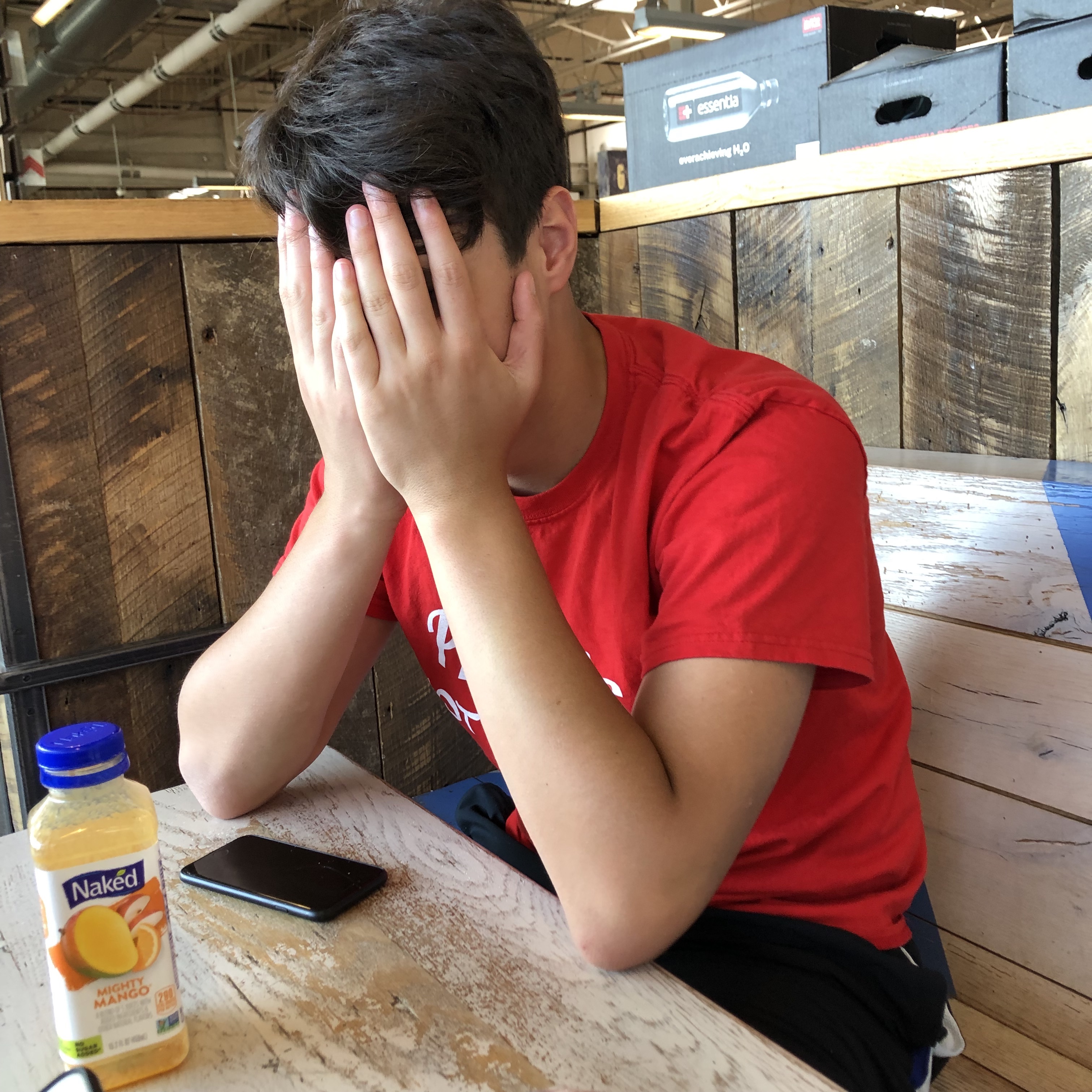Three of my four children have vacated the premises for the summer, but I’m not quite done parenting yet. I have one kid left at home. Not my baby, as was the case until last summer, but my oldest, a sixteen year old boy. It has been thirteen and a half years since he was an only child and he often wonders aloud, in earshot of his siblings, what that would it have been like to have had all my attention. For the next week we can test It out. There were years when being our only child would have meant endless opportunities to shoot a soccer ball with me in goal or unlimited hours building train tracks for his Thomas the Tank Engines, but those have long since faded as his favorite past times. These days much of his time is spent finding space away from me and my husband, establishing an independent life with friends or playing X-BOX in the den, coming out mostly to discuss meals and new clothing needs. He is an enormous version of the little boy he once was, still loving, empathetic and jolly, but seemingly needing us much less.
I have been asking myself, with the quiet echoing through the now empty rooms of my apartment, how do I give my son the experience of having all my attention in a way that feels right to him at this age? As my friend Cara Natterson says, it’s tempting to let your teenage son close his bedroom door and come out four years later, but it’s not the best path for him or you. What I am beginning to understand is that some of the most important conversations I will ever have with my son will take place over the next couple of years at the time when maybe he least wants to hear them. The hours of playing with Tonka trucks, building Legos and reading Frog and Toad were foundational for both him and me in so many ways. I narrated his life for him while we did those things, commenting on what I noticed and advising on how to solve minor challenges. But now, that narration is curtailed for his sake and for mine and he is figuring out much of those things on his own, sometimes choosing to listen to me and other times not. When he was younger parenting felt very one way — do this or don’t do that, but now there is a give and take between us that didn’t exist before. He no longer needs me to help him build his blocks or hold his hand when he crosses the street, but at his age how do I impart to him the guidance and love that those acts metaphorically convey with hampering his growth?
I don’t have time to figure it all out over the course of the next week, so I’ve given myself permission to set one goal before he gets on a plane for his summer adventures. What has struck me the most about his development and our relationship over the past year is the depth of his insights about the world and his occasional brutal honesty about our family. Our conversations are no longer a one-way monologue to which he is required to listen and answer when prompted. It is now an actual dialogue in which he shares his thoughts and observations, some of which I want to hear and some of which I don’t. Those comments often begin with: “No offense Mom” or “I don’t mean to be harsh Mom” and then I know I’m in for it. Occasionally he shuts down our conversation with the response “fine” to my questions. I recently became so irritated by his “fine” that I said, “How could it possibly have been just ‘fine’?” He said, “Mom, if I say good or bad, you ask me more questions. If I say fine, there’s nothing else for you to ask.” Wow, parenting lesson offered swiftly and decisively in two sentences.
So keeping in mind his alternating willingness and unwillingness to engage in conversation, I have been grappling with how to approach this one week alone with him. Dangling before me in this stretch of time is the enormous temptation to ask my son every question I’ve been dying to ask over the course of the year. However, I have enough awareness that he doesn’t always want to answer my questions and asking them may cause him to retreat from me. I am coming around to the reality that right now closeness between me and my son may sometimes not sound like conversation, but may sound more like quiet.
When he was five, once we were done building his train tracks, my son would play on his own while I looked on. He wanted me nearby but was uninterested in talking with me while he played, preferring to narrate his trains’ movements along the tracks. I have come to realize that those hours of watching him play with trains have their equivalent in his adolescence. Now that he’s 16, much of the parenting foundation has been laid, the train tracks have been built, and now sometimes it is not about me offering my opinions or interrogating. Sometimes now, as it was then, it is about me and my son sitting quietly together, him knowing that I am there if he needs me but neither of us saying much. This doesn’t mean that over this week of our time alone, I shouldn’t create opportunities for him to share his opinions nor should I walk on eggshells if there are things I believe he needs to hear from me. It just means I shouldn’t expect or require that of him all the time. Just because we have the time or opportunity to pour our hearts out to each other, doesn’t mean we have to in this very moment.
So my goal over the next week, while I can focus on my oldest child, is twofold: One, is to listen to his thoughts and soak up his observations with an open mind. And the second is to sit in the quiet with him so that he knows I’m there if he needs me.







